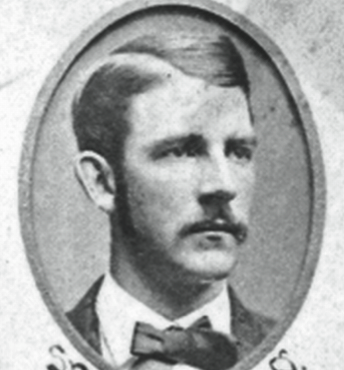June 2, 1873: Boston’s Al Spalding blanks Brooklyn
 The Red Stockings started a 10-game road trip in early June with their first stop in Brooklyn to play the Atlantics.
The Red Stockings started a 10-game road trip in early June with their first stop in Brooklyn to play the Atlantics.
Boston had a 4-3 record, good for fourth place, four games behind the Philadelphia White. Brooklyn was 3-4 in fifth place, five games back. The two teams had split a two-game series in May with Boston winning the first game, 8-2, and losing the second, 11-10.
The teams played at the Union Grounds, baseball’s first enclosed grounds, constructed by William Cammeyer and opened in 1862.
Al Spalding pitched for the Red Stockings with 17-year-old Jim Britt pitching for Brooklyn.
The Boston Herald noted that a large crowd of approximately 2,000 fans attended the game with the betting favoring Boston with odds at 6-1.1
The sporting crowd had correct odds as Boston easily shut out the Atlantics, 5-0. The Brooklyn Eagle noted, “The Brooklyn nine were, for the first time this season outfielded and outbatted.” Meanwhile, “The play of the Bostons was excellent”; the reporter commended the “noteworthy” defensive play of catcher Deacon White (seven putouts, one assist) and left fielder Andy Leonard (three putouts, outfield assist, no errors).2
Spalding gave up just five hits. The Boston Herald noted, “The Atlantics worked like beavers to score a run, but all to no purpose, Spaulding’s sic pitching being decidedly too much for them, backed up as it was by the sharpest kind of fielding.”3
Boston scored its five runs against Britt on 10 hits. The Atlantics also committed 14 errors, with one writer particularly citing the poor defensive play of third baseman Bob Ferguson: “The weak point of the Brooklyn nine was at third base, in which position many of the most important errors of the season by the nine have been committed.”4
The game also produced a controversy that perhaps reflected baseball’s recent transition from pre-professional days when original rules, as envisioned by Henry Chadwick, required “gentlemanly” conduct.
The controversy occurred in the top of the second inning with Boston at bat. The Red Stockings had loaded the bases with no outs in part because of errors by Ferguson. With Jim O’Rourke at bat, catcher Tom Barlow deliberately dropped the third strike. He picked up the ball, touched home plate to force out runner Deacon White coming in from third, and then threw out O’Rourke at first. First baseman Herman Dehlman then threw to shortstop Dickey Pearce and Pearce threw to second baseman Jack Burdock, “who ran Manning out” in a rundown to complete the triple play.5
Umpire Theo Bomeisler disallowed the triple play, ruling O’Rourke out on strikes, calling Manning out on the basepaths for attempting to advance, and sending White back to third. Harry Wright then flied out to end the inning. Reporters described the umpire’s decision as “an error of judgment” but noted that it did not affect the score.6
The controversy continued when team captain Ferguson confronted umpire Bomeisler. Ferguson had already complained about an “objectionable decision” in the bottom of the first when Bomeisler called an Atlantic runner out at second. Ferguson complained that second baseman Ross Barnes had missed the tag on a throw from catcher White.
According to the Eagle, Ferguson “came from the field [and] began to abuse the umpire for his decision [negating the triple play], and to question the integrity of his action.” Bomeisler promptly “retired from the field,” refusing to continue as umpire.
The article described Ferguson’s actions as “insulting” and inappropriate. Ferguson, as captain, had a responsibility to “set his men a proper example in deportment and particularly in curbing an unruly temper.” Since Ferguson was also president of the National Association of Base Ball Players, his job was also to “not only see that the rules of the game are strictly enforced, but especially is it requisite that he himself should obey them.”7
After a brief delay, the Atlantics persuaded Dick Higham, an outfielder for the New York Mutuals, to come out of the stands and umpire the rest of the game.8
The victory was Spalding’s only shutout in 1873, when he pitched in 60 games, starting 54, and ending the season with a 41-14 record.
Brooklyn pitcher Britt, on the other hand, retired after the season with a two-year record of 26-64.
Notes
1 “Base Ball,” Boston Herald, June 3, 1873: 2.
2 “Base Ball,” Brooklyn Daily Eagle, June 3, 1873: 3.
3 Boston Herald.
4 Brooklyn Daily Eagle.
5 “The National Game,” New York Herald, June 3, 1873: 4.
6 Ibid.
7 Ibid.
8 With almost poetic irony, the National League banned Higham (who had ended his playing days with the Troy Trojans in 1880) from baseball in 1882 for fixing games as an umpire.
Additional Stats
Corrections? Additions?
If you can help us improve this game story, contact us.

